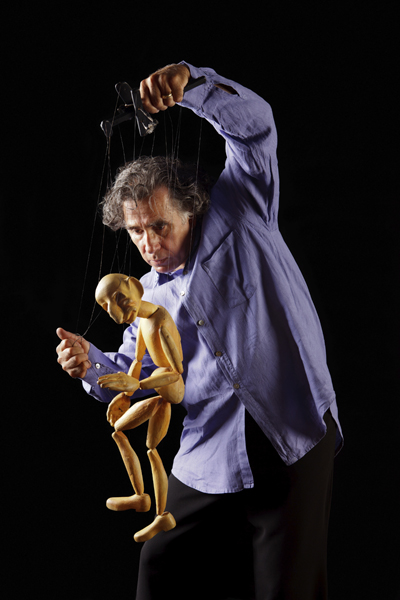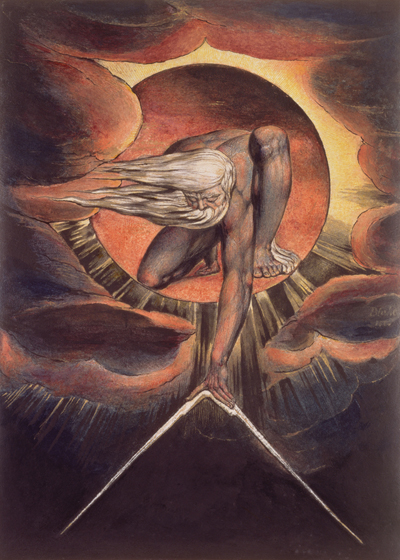
|
In Frank Herbert’s Dune books, one of the turning points in the 10,000-year history of that far-future society was the Butlerian Jihad. That struggle was a war against the computer, intelligent robots, automation, and the machine mind, because these things had supposedly enslaved humanity to the point that human beings almost disappeared. The underlying principle of the jihad was “Thou shalt not make a machine in the likeness of a human mind.” In the wake of the Butlerian Jihad, the Great Schools developed human capabilities to an even higher level than before.
I am not necessarily a Butlerian. I believe that “machine minds” will do us a lot of good, freeing society from the vagaries and distractions of human intellect and emotions when ordinary people are put in charge of endlessly boring jobs. We are already seeing some of that good in improved, automated business systems like just-in-time logistics, barcoded inventory stockkeeping, predictive maintenance programming, and factory automation. Oh, and instant communications that enable you to contact friends without having to write down and remember a ten-digit telephone number. So far, the computer has freed up a lot of human capacity to become more relaxed, more creative, and better fed, among other things.1
But I am concerned with Herbert’s view of humanity in that far-future society. Too often, people trained to perform exquisite physical and mental exercises—like the Mentats, whose memory tricks and calculating ability enable them to become human computers—are treated as disposable and replaceable machines themselves. Consider the experience of Piter De Vries at the hands of the Baron Harkonnen.
Any social structure or organization that views human beings solely in terms of their usefulness for some purpose or function outside themselves is inherently anti-human. Whether it is the eugenics movement, which viewed persons with certain disabilities as not being worth the enjoyment of continued life because they are a burden on society, or any rationing scheme for medical services that invokes a cutoff point for persons of a certain age, again because they are no longer productive and are becoming a burden, this is a view that values resources above people, utility above basic humanity. In fact, any view that values a human being without reference to his or her own waking sense of self and value would offend a dedicated humanist.
This certainly applies to any system that buys and sells people as slaves, good only for their muscles or their mental synapses, without reference to the kind of life they might want—or might strive—to lead.
It would also apply to collectivist societies on any scale larger than the family, the isolated village, or a nation in a state of emergency such as during wartime. It would apply to any society where a governmental, social, or priestly authority determines how and where people should labor and makes it difficult, if not impossible, for a human being to choose his or her own place in that society and points of contribution. That is, his or her own destiny.
Does this utilitarian view then apply to a market-based, capitalist society? Well, from one point of view, everyone in such a society who enjoys or claims adult status is encouraged or required to be productive. In the jaundiced view, they become “wage slaves” in order to survive.
But the difference, for me, is that in a market-based economy people are free to evaluate for themselves the needs of their society, to plan for their own contributions at the best scale of pay and other rewards they can seek, and to obtain the necessary education, entry level positions, and upward path to achieve their goals. There are obstacles to this achievement, of course: lack of talent, lack of opportunity, lack of understanding itself. But these obstacles are not put in place by a conscious, social decision from a government board or other bureaucracy that tries to establish—for its own benefit—the worth of the human being in question. As with so much else in life, the “dead hand” of the marketplace resembles the blindly distributed opportunities and adversities provided by fate or by chance.
And therein also lies the difference between a socialist society and a market society. An aspirant to a certain position in life is going to face obstacles and difficulties, no matter how that society is structured. Not everyone can make a living as a musician or a novelist. Not everyone has the brains or educational stamina to become a successful doctor or lawyer.2 Not every town can support the number of people who would like to work as a plumber or a car mechanic. There are going to be winners and losers in every society. At least in a market-based society—where there is adequate prevention of discrimination on the basis of race, creed, and all those other attributes packed into our laws—the winners and losers sort themselves out on the basis of desire, dedication, talent, gumption, vision, and opportunity. In a socialist society, the selection too often falls to a group of people who have already attained power through other means and then kept it for themselves, who promote the interests of those in their circle and the sons and daughters raised in it—think of a land-owning aristocracy, or the old Soviet nomenklatura—and then order society for their own benefit.
For any aristocratic society—or any mature, collectivist, command-and-control economy—the people at the top and those striving to reach the top will view the average human being solely in terms of his or her use to themselves and to that society. People then become numbers, placeholders, objects to be sorted and fitted into pre-assigned roles. And the tragedy is that those roles are limited to the traditional functions that already exist or those within the imaginations of the people who benefit from that society. In this situation, human desire, imagination, dedication, talent, and all the rest of human attributes are inconvenient. They tend to create static in the nice, clear signal of societal intent and function. They disrupt things. They need to be squelched and, if they persist, stamped on.
Societies that try to fix themselves for all time in a rigid, hierarchical stasis soon stagnate. They create no new and unapproved music or art, no inventions, no new ways to think, live, and be. And the tighter these societies try to hold on to their protective limitations, the sooner they will fall to the disruptions of barbarians who just don’t care about the old order.
Governing humanity is a difficult process. It needs to be done with a light hand and not a lot of preconceived notions. So stand back. Expect surprises. And reap the rewards.
1. And I don’t agree with the underlying philosophy of James Cameron’s Terminator movies—although I enjoy them immensely—that an artificially intelligent computer system will take over our military or some other function in society, see people as a threat, “decide our fate in a microsecond,” and try to exterminate all human life. I think an intelligent system, if it ever rises to human-scale adaptability and does more than take care of its own business and programmed functions—that is, it becomes some kind of artificial person—will be fascinated by human beings. It will ponder the issue of free will: how humans are able, on occasion, to override their previous education and experience and do something totally unexpected. For a machine driven by its embedded programming, such a feat will be endlessly enticing.
2. And yes, some professional association—the government-sponsored medical association, state bar, or engineering society—will impose tests of an entrant’s qualifications and rule on his or her ability to practice. The goal, in a well-run society, should be to make these tests neutral as to the applicant’s race, class, politics, or other extraneous characteristics; make sure the test results cannot be influenced by cronyism, money, or some other consideration; and ensure that the public is served by the best candidates available.
